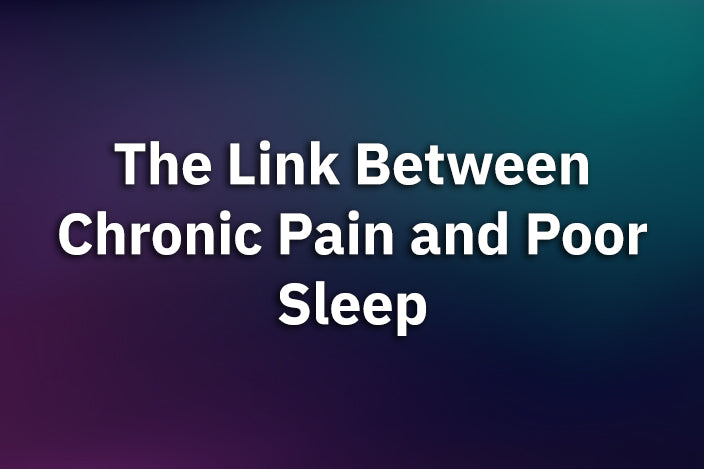Chronic pain and poor sleep have a complex relationship. The pain neuromatrix emerges as a critical factor as science delves deeper into this relationship. This network of neural connections is important in the vicious cycles of sleep disruption and pain perception.
Understanding Chronic Pain
Chronic pain does not go away. In contrast to acute pain, which indicates an injury or problem, chronic pain persists, often outlasting its initial cause. This type of pain is not only prolonged; it is also accompanied by a slew of physiological and psychological factors.
The pain neuromatrix, a recent theory, provides some insight into this. It implies that pain is more than just a reaction to stimuli. Instead, it is the result of a complex interplay of neural networks that span the brain.
The Role of Sleep in Pain Perception
Sleep has enormous power to regulate many bodily functions, including pain perception. A well-rested body is better able to deal with pain. On the other hand, a sleep-deprived body may amplify pain signals, increasing discomfort.
Sleep not only governs the body's response to pain. It is a regulator that controls how the brain processes pain signals. Sleep deprivation skews this processing, resulting in increased pain sensitivity.
The Pain Neuromatrix
Melzack's neuromatrix theory transformed our understanding of pain. It proposes that pain is caused by a variety of neural networks, rather than just injury or damage. This matrix is dominated by three loops: cognitive, sensory, and affective.
Each loop serves a specific purpose. The cognitive loop deals with pain comprehension and response, the sensory loop with intensity and location, and the affective loop with emotional reactions. Sleep disruptions have different effects on each loop, which contributes to altered pain perception.

Chronic Pain Affecting Sleep Quality
Persistent pain is a significant impediment to getting a good night's sleep. Chronic pain patients frequently report fragmented sleep patterns. Sleep may be delayed, or patients may wake up frequently during the night.
Pain also disrupts sleep stages. Rapid Eye Movement (REM) sleep, which is essential for mental health and memory, is frequently reduced in chronic pain patients. This decrease aggravates mood disturbances and can heighten pain perceptions.
Poor Sleep Amplifying Pain
Sleep deprivation causes more than just grogginess. It increases the volume of pain signals. A sleep-deprived brain has increased activity in pain-sensitive areas, making minor discomforts unbearable.
Sleep deprivation upsets the delicate balance within the pain neuromatrix. The strain is felt by each loop. The cognitive loop has difficulty regulating pain response, the sensory loop misinterprets pain intensity, and the affective loop exaggerates emotional distress.
The Vicious Cycle of Pain and Poor Sleep
Sleep is disrupted by chronic pain. In turn, disturbed sleep exacerbates pain. This cyclical relationship between pain and insomnia poses a challenge for both patients and clinicians. This cycle wears down the body and mind over time, resulting in poor health outcomes.
The body's pain threshold decreases as the number of nights of poor sleep increases. Minor irritations escalate into major issues. Similarly, as pain intensity increases, restful sleep becomes more difficult to achieve. Because of this interdependence, interventions are both complex and critical.

Strategies to Break the Cycle
Addressing this intertwined problem necessitates comprehensive solutions.
Nonpharmacological interventions have demonstrated promise. Cognitive-behavioral therapy, for example, teaches people how to manage pain and sleep problems.
Mindfulness and meditation practices can also help anchor the mind, alleviating pain-related anxiety.
Medical treatments are still valuable. Pain relievers or specific sleep aids can provide immediate

